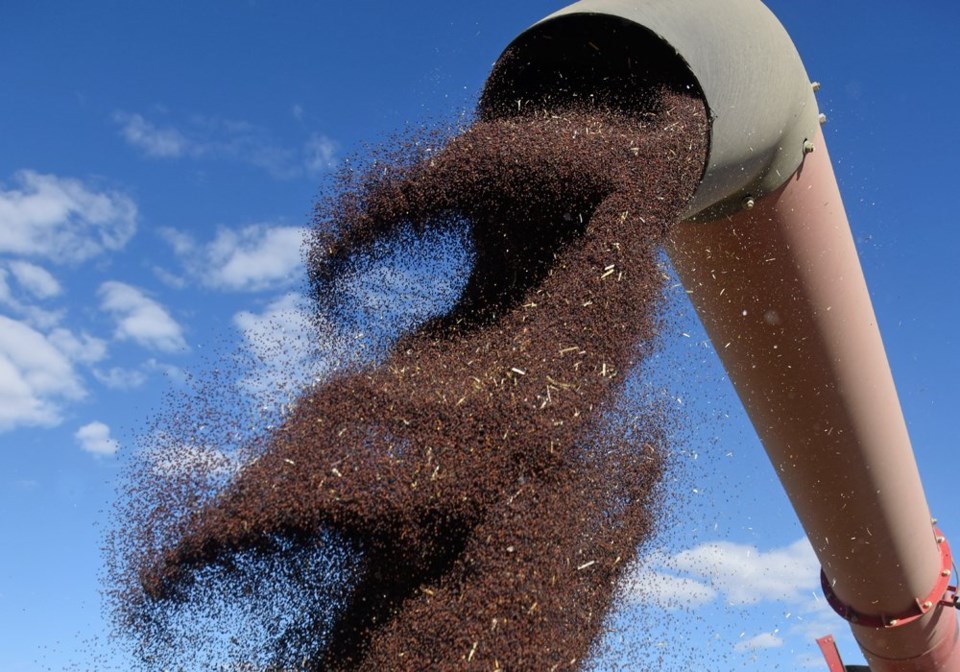The mean oil content of No. 1 canola is 41.8 percent based on the 1,437 samples analyzed by the Canadian Grain Commission as of Oct. 20.
That is the lowest level since the 2003 crop and well below the previous five-year average of 44.4 percent.
“Grim is the right way to describe the situation overall this year,” said Chris Vervaet, executive director of the Canadian Oilseed Processors Association.
“It’s a double whammy. We have scarcity of seed this year and a lot of what is available does have that lower oil content.”
His member companies are reporting similar values as the CGC with the crop coming in two to three percentage points below normal oil content.
That means crushers need to buy more canola than usual to get the same amount of oil, and seed prices are at record levels.
“There’s no doubt about it, there are going to be higher costs for crush this year,” said Vervaet.
Sourcing canola is going to be difficult. Ending stocks were low coming into a crop year where production was two-thirds the level of the previous year.
Agriculture Canada is forecasting a 28 percent reduction in domestic crush to 7.5 million tonnes from 10.4 million tonnes in 2020-21.
“There is a possibility of exploring the potential for imports,” said Vervaet.
Canada typically imports a small amount of canola from the United States but it could be looking further afield this year, which is rare, he said.
Rumours have surfaced that some grain companies are contemplating applying price discounts on deliveries of low-oil content canola.
Rick White, chief executive officer of the Canadian Canola Growers Association, said he has not received any calls from farmers or board members complaining about discounts, so he was unable to verify the rumours.
If they are true, he thinks it would set a dangerous precedent for grain companies.
“It’s interesting that they start talking oil pricing considerations when it looks like a discount,” he said.
“I have yet to see any premiums in the market in the past for the higher-than-normal oil content.”
Canola growers have in past years discussed the merits of seeking premiums for high oil content and decided against the idea because it is primarily determined by weather conditions rather than agronomic practices.
“It has always come back that that’s a risk farmers can’t really manage,” said White.
He noted that oil content is not a grading factor but it might be included as a specification in individual contracts that growers sign with grain companies.
He advised growers to read their contracts to reacquaint themselves with what they have signed.
Even if there is no clause in the contract it would be a good idea for farmers to know the oil content of their crop before sitting down with their grain representative.
White said this is not a good year for the industry to get picky about product coming into the elevator or crush plants.
“Canola value is extremely high and this seems like small potatoes to me,” he said.
“This is a year where canola is going to be in short supply and everybody in the industry should be thankful for what they’ve got.”
Going forward, if grain companies want growers to produce canola with high oil content they need to be transparent about it so farmers can prepare and start selecting varieties that produce more oil, he said.

